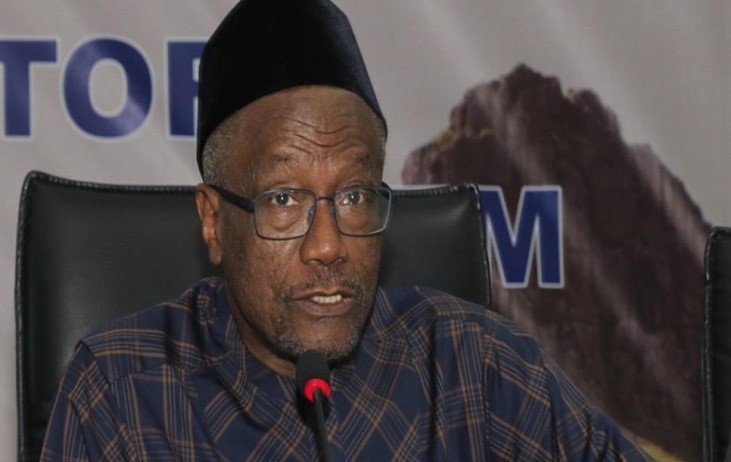‘Nigeria, other foreign investors may lose grip of reinsurance in Sierra Leone’
Kortor Kamara (photo), a Sierra Leonean insurance expert based in the US, with over 25 years’ experience in underwriting, reinsurance and risk management, shares with Modestus Anaesoronye his thoughts on why Sierra Leone should have its own reinsurance company now. Excerpt Foreign Direct Investments and local capacity .
Foreign Direct Investments (FDI) could be a major component in addressing development inertia in third world countries, and I definitely subscribe to its utilisation in the industry and economy of countries. However, in the Sierra Leone context, we do not even have a reinsurer domiciled in the country, so the issue of asking foreign reinsurers to go is moot at this stage. What I have been advocating is that the country needs a reinsurer, preferably a domestic one, that can channel all the current foreign capital outflows into a cohesive development-oriented segment within the country. That way, the inherent benefits of reinsurance can be realized, but with the reinsurance premiums remaining in country and invested in viable enterprises rather than in foreign countries.
Foreign reinsurers and competition
The presence of foreign reinsurers does not necessarily stop the establishment of a local reinsurer. However, the peculiar idiosyncrasies of the Sierra Leonean insurance landscape and the Sierra Leonean’s penchant for anything but local, militates against the sort of competition that otherwise could be engendered with the introduction of various foreign reinsurers, and hence the business viability and survival of such a local entity is not assured. As an example, the current banking and insurance sector in Sierra Leone is dotted with foreign firms. This has resulted in the decline of local firms, both in real and actual terms, and potentially a net loss to the country.
Over ambitious recommendation?
I prefer to see the outcome of the civil war as a real opportunity for the development of our country’s economy. As you may know, the business-as-usual attitude which prevailed in the economy prior to the war, if not fundamentally changed, risks bringing about apathy. That is why the paradigms that included an over dependency on foreign aid and capital to the detriment of nurturing local industry must not be continued.
Insurance penetration in Sierra Leone
I will conservatively peg this at about 3-5 percent. The creation of a market, let alone a mass market, has by and large remained dormant due largely to the policies of governments in Africa and the leaders of the insurance/risk management industry, who have failed to articulate a clear vision of an economy and society – the cog of which rests on insurance or micro-insurance products designed to augment development. Whatever infrastructure building being embarked upon absence the underpinnings of solid risk management principles and practice, risks bringing our collective efforts to naught. For example, developed societies have largely been able to incorporate principles of risk management and insurance as the basis for their phenomenal development and growth, literally from cradle to death.
Constrained local capacity
The capacity has been largely locally constrained due to political and economic forces, coupled with the Sierra Leonean business elite’s failure to assume risks. There appears to be an aversion to change and incorporating new and bold ideas. In fact, agents of change seem to be stifled and frustrated as the people in power – be it in the political sphere, the bureaucracy and industry – are content with mediocrity and a maintenance of the status quo in their little turfs.
For example, in 2006 I attempted to address the issue of land sales to multiple buyers of the same piece of property in the country by introducing a title insurance policy. Such an insurance policy could forestall the sale of fraudulent titles and introduce a system of independent verification of land documents in conjunction with records at the Ministry of Lands.
In conjunction with an insurance carrier in the country, we sought to obtain the government and the ministry’s approval for incorporation of a regulation/requirement for title insurance (akin to an automobile insurance) prior to any sale of lands and property in the country. However, elimination of the corruption that currently prevails was deemed not in their collective interests and as such, the programme has been frustrated to this day.
Role of risk management, insurance in economic development
I am of the school of thought that risk management and insurance can play a major role in advancing the development of Africa in areas encompassing not only how we govern ourselves, how business is done, how we market our mineral assets, healthcare delivery and management, procurement and contracting. Rather, a public-private mechanism must develop where governments and the insurance industry are able to identify socio-economic and governance areas that with the requisite legislation, the industry can craft affordable insurance policies addressing the risks. These are the basic infrastructure any modern society relies on in its quest for sustainable development.
In my over 25 years’ experience in the United States working in the insurance industry, I have come to the conclusion that insurance and risk management principles intertwine the fabric of this country’s institutions, governance, policies and infrastructural development, and continues making her the envy of the modern world. The ability of the society to utilise insurance programmes has enabled the US to embark upon endeavors other risk-averse nations continue to shy away from. As a result, businesses, investors and entrepreneurs are able to unleash ingenuity and innovation in addressing problems and introducing new products. For example, the proof of auto insurance laws throughout the country is instructive. These laws and policies were embarked upon with the goal that every driver must have liability insurance before their vehicle can be registered. So the problem of uninsured drivers causing accidents with its economic ramifications would be addressed.
Also, in the health care field, the requirement that employers must provide heath insurance for their employees has resulted in a health care delivery system that remains innovative and is the envy of many in the world.
Market challenges
The challenges revolve largely around the dearth of requisite capacity attuned to the modern insurance marketplace. Insurance leaders with vision, innovation and an eye for thinking outside the box must emerge to start addressing the issues of micro-insurance to the more than 80 percent of our populations that reside in rural towns and villages
Government policies and insurance in Africa
Governmental policies or lack thereof, have certainly played a very profound role in stifling the growth of insurance. Rather than adopting policies and laws designed to introduce market-based free enterprise solutions to the continent’s myriad developmental problems, most countries continue with policies of governmental management of these institutions and programmes. We need laws unleashing the centrality of insurance in areas of health care delivery and management, real estate transactions, contracting, procurement, employment
Enforcement of legislations
I certainly think it is high time these laws were enacted and enforced. This is definitely the path towards modernisation, increased standard of living and growth for our peoples.Finally, I believe we can look at every facet of our society and try to design policies and programmes based on risk management/insurance principles to address whatever deficiencies exist in current implementation.
Insurance growth factors
Marketing of insurance and the training of the sales force remain a concern. I think with a trained force of agents and producers, the benefits of insurance and its direct correlation with risk pooling and development can adequately be made to customers.
By Modestus Anaesoronye
Stay with Sierra Express Media, for your trusted place in news!
© 2011, https:. All rights reserved.






